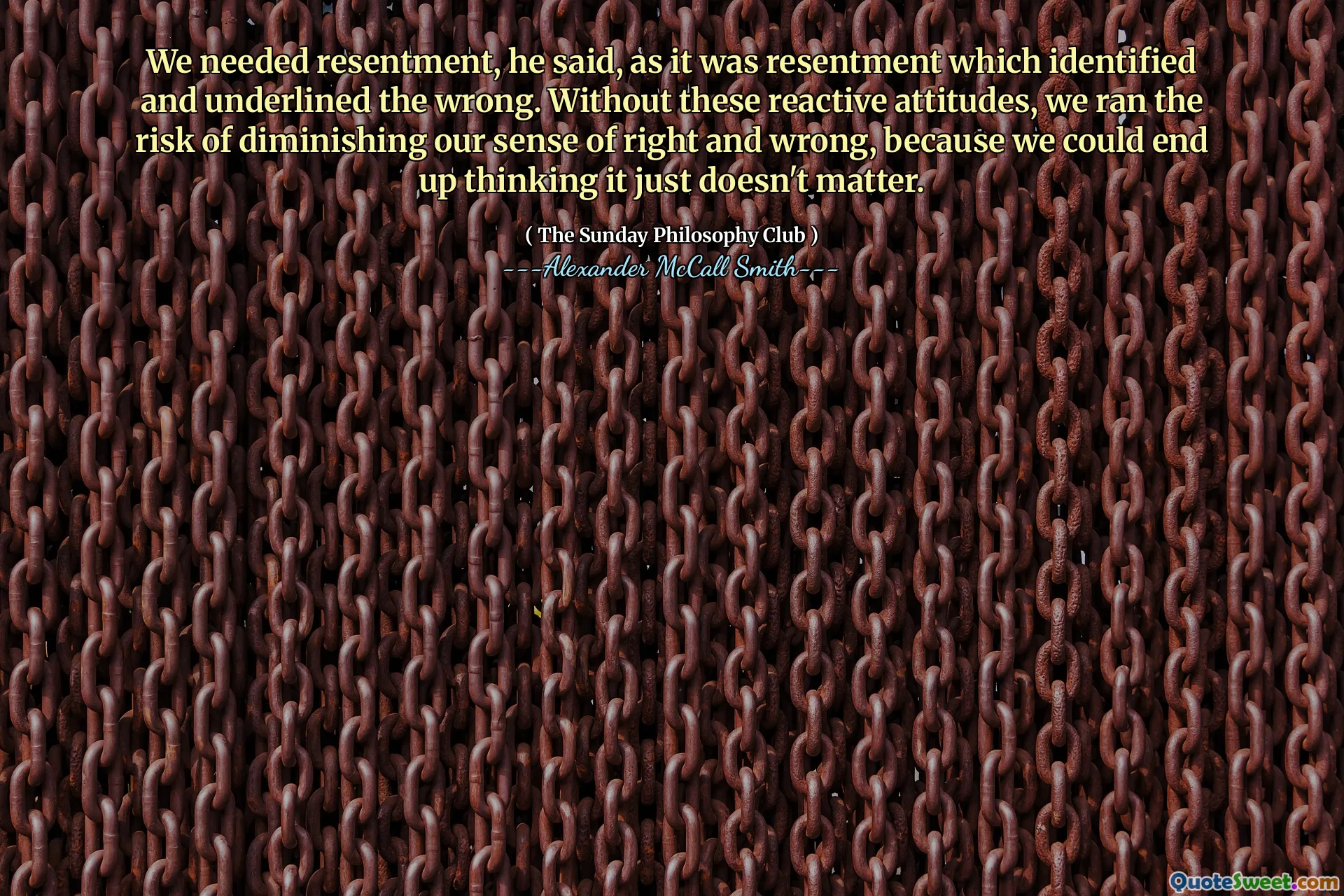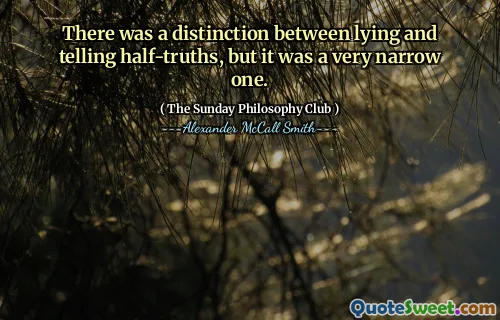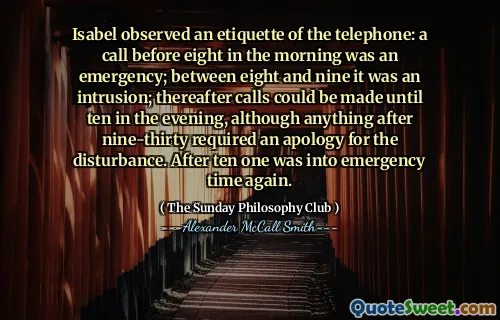
We needed resentment, he said, as it was resentment which identified and underlined the wrong. Without these reactive attitudes, we ran the risk of diminishing our sense of right and wrong, because we could end up thinking it just doesn't matter.
In "The Sunday Philosophy Club," Alexander McCall Smith explores the significance of resentment in shaping our moral compass. The character argues that resentment serves a crucial role in highlighting and recognizing injustices. Without these feelings, individuals may lose their sensitivity to moral issues, leading to a diminished understanding of right and wrong.
This idea emphasizes the importance of emotional reactions in maintaining a strong ethical framework. If we overlook the necessity of such responses, we risk developing an indifferent attitude towards moral breaches, which can undermine our commitment to justice and fairness.











